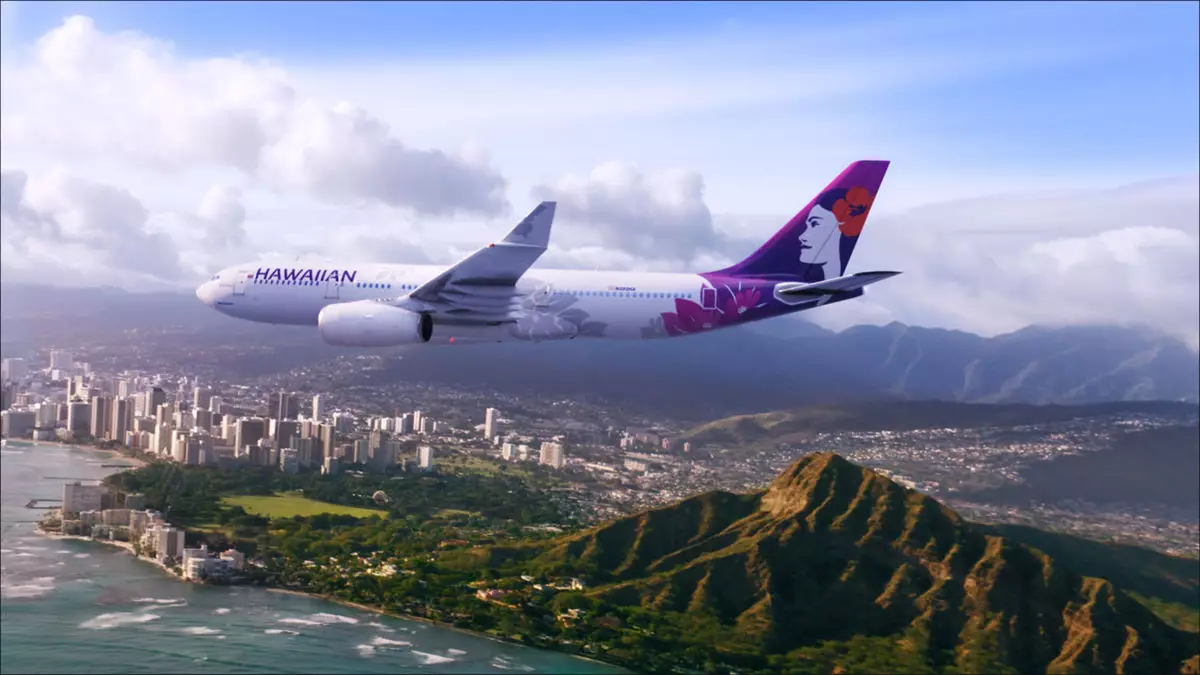In a bold move to enhance operational efficiency and customer accountability, Hawaiian Airlines has introduced a stringent no-show policy effective from May 15. This paradigm shift signifies a new era for the airline, which was previously lenient regarding passengers who failed to board their flights. Now, any flyers with nonrefundable tickets who do not inform the airline of their absence will face immediate consequences: their remaining itinerary will be voided, and no flight credits will be issued. The airline asserts that this measure not only brings their policy in line with Alaska Airlines—its new parent company—but also fosters a more responsible travel culture.
Hawaiian Airlines claims this initiative will streamline its operations and, most importantly, discourage travelers from booking flights without genuine intent to fly. The unspoken reality is that no-shows create significant discrepancies in seat availability, complicating the travel experience for those with immediate travel needs. This philosophy reflects a broader trend in the airline industry towards more rigorous enforcement of ticketing policies, aimed at ensuring fairness and efficiency.
Customer Impact and Responsiveness
While Hawaiian Airlines’ shift towards a no-show policy appears to benefit the airline by optimizing resource management, one must wonder how this will impact customers. The airline encourages proactive behavior, urging passengers to modify their travel plans ahead of time. However, this places an added burden on travelers, particularly those with unpredictable schedules. For many, unforeseen circumstances can lead to missed flights, and the lack of a safety net for no-show situations could alienate a portion of the traveler demographic.
It is crucial to consider how Hawaiian Airlines will balance its hardline policies with customer service efforts. Thankfully, the airline seems to recognize the need for flexibility—offering assistance to passengers who encounter last-minute challenges. The grace period for travelers running late is a commendable gesture; it shows an understanding that life is unpredictable. However, this leniency must be adequately communicated and implemented. If the airline fails to effectively translate policies into customer support in practice, it risks frustrating loyal customers who may find themselves stranded.
Cultivating a Culture of Responsibility
Hawaiian Airlines’ reformed policy serves as a catalyst for cultivating a stronger sense of responsibility among travelers. While it may sting for those who have grown accustomed to flight cancellations without repercussions, the emphasis on accountability could foster a more respectful travel culture. Airlines have increasingly been challenged by capacity issues and overbooked flights; gestures towards responsible bookings may mitigate some of these common industry woes.
Moreover, the advent of this no-show policy encourages a critical conversation about the entitlement often perceived in air travel. Passengers should be reminded that flying is a privilege that encompasses responsibilities, including being considerate of availability and the needs of fellow travelers. Airlines like Hawaiian are essentially empowering their customers to take ownership of their travel plans, reinforcing a collective responsibility.
Thus, while the new no-show policy may initially seem punitive, it could ultimately lead to a better, more efficient travel experience for all. In a landscape where travelers are often treated as mere commodities, Hawaiian Airlines’ strategic shift could be the first step toward restoring a sense of responsibility, both for the airline and its customers.


Napsat komentář